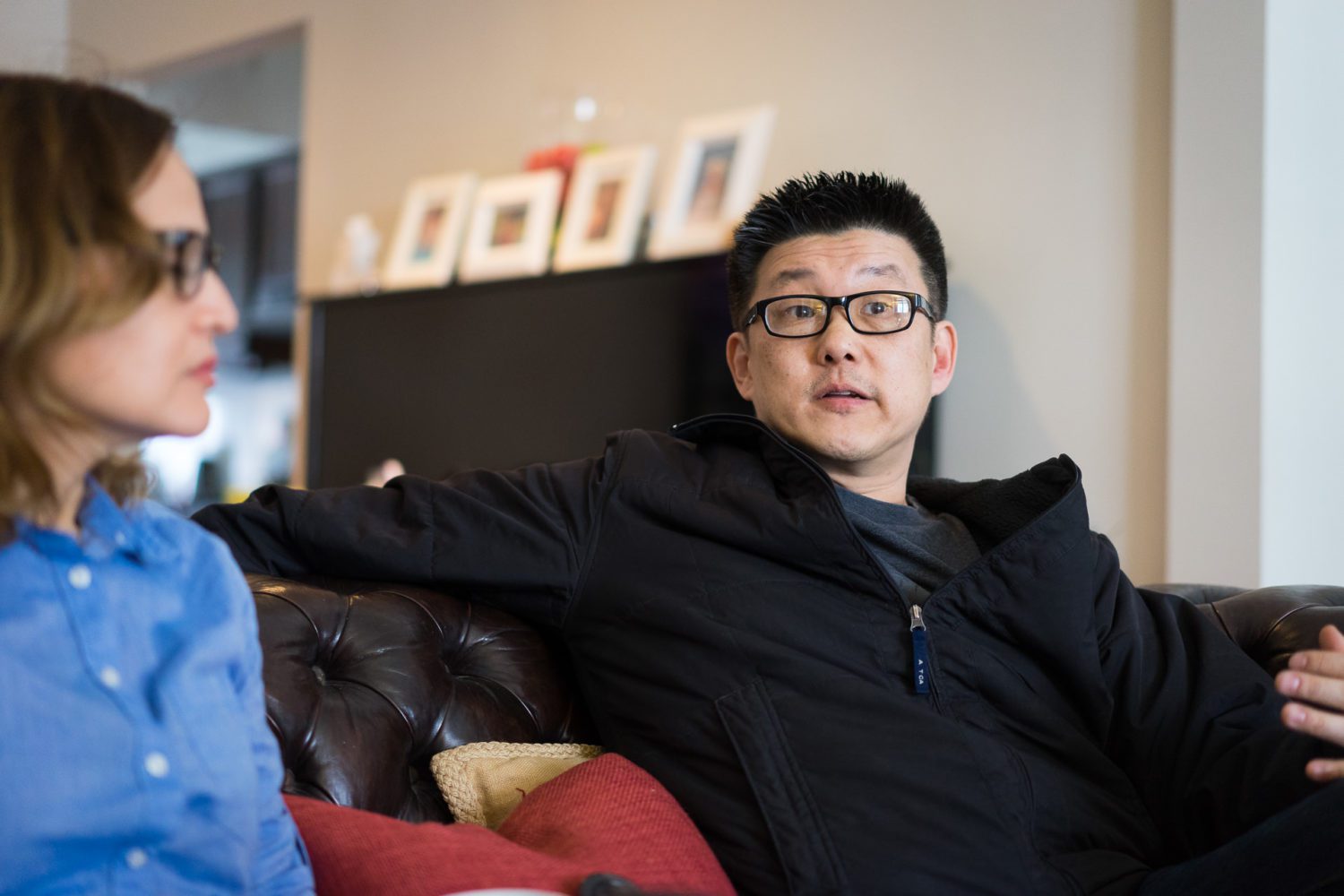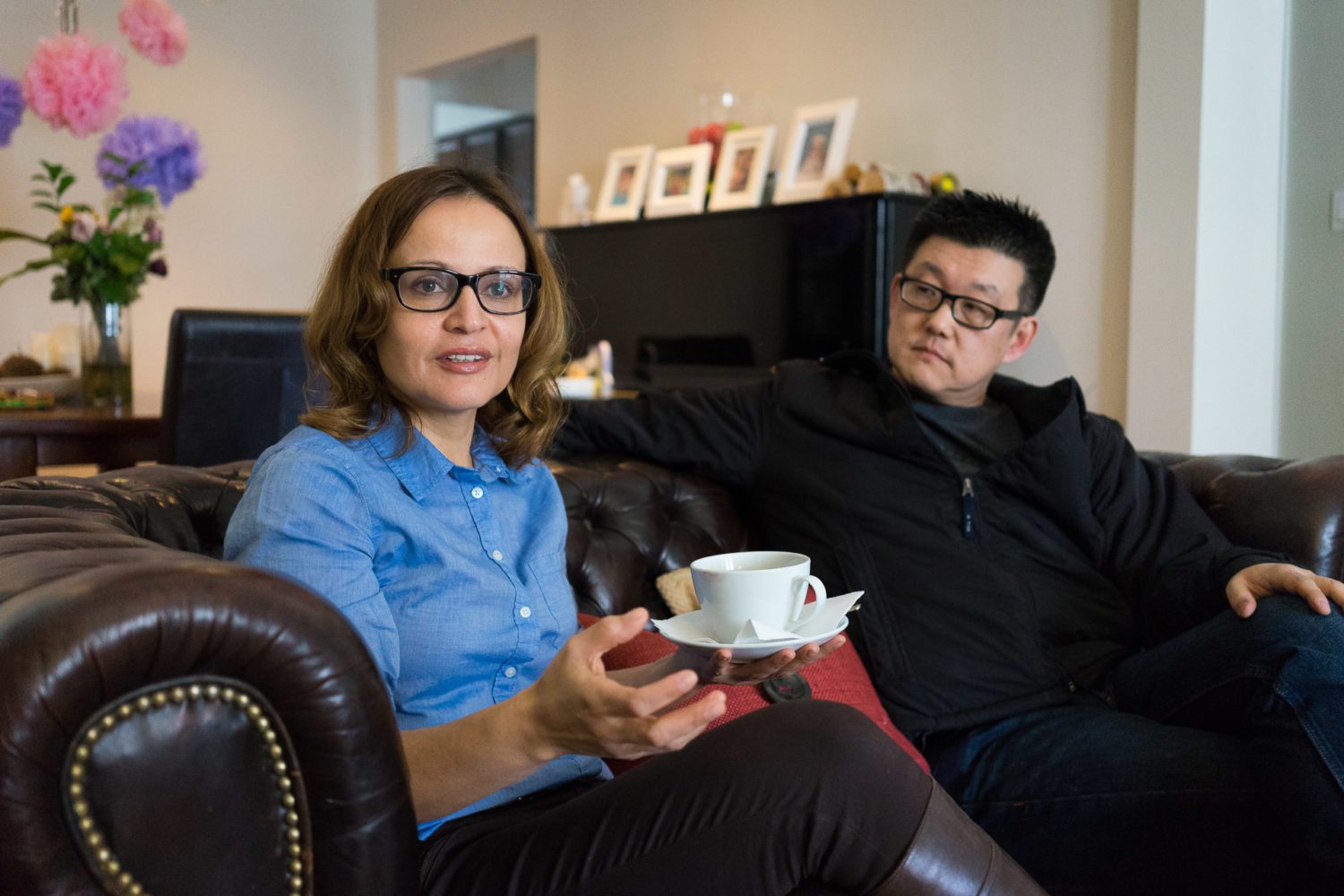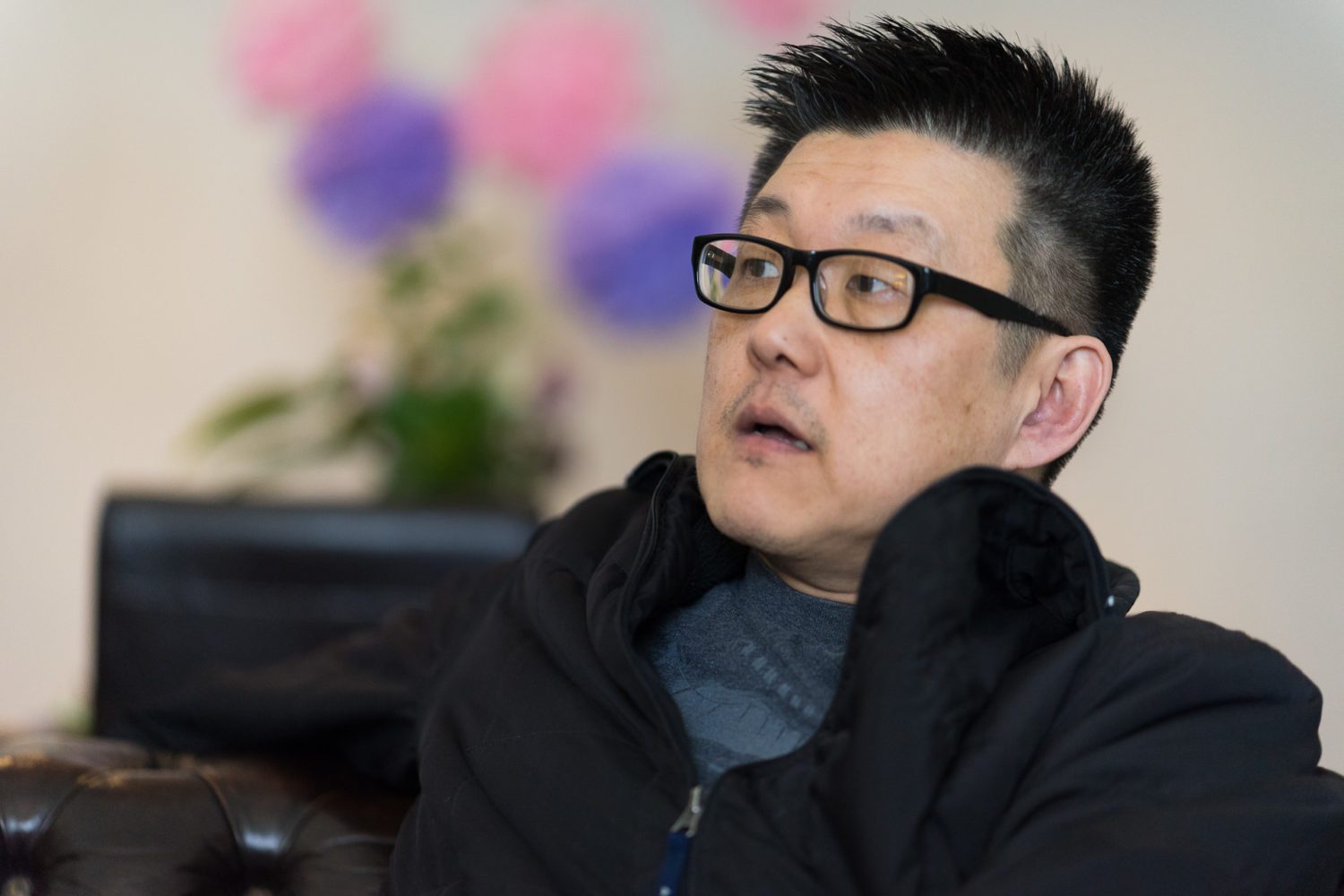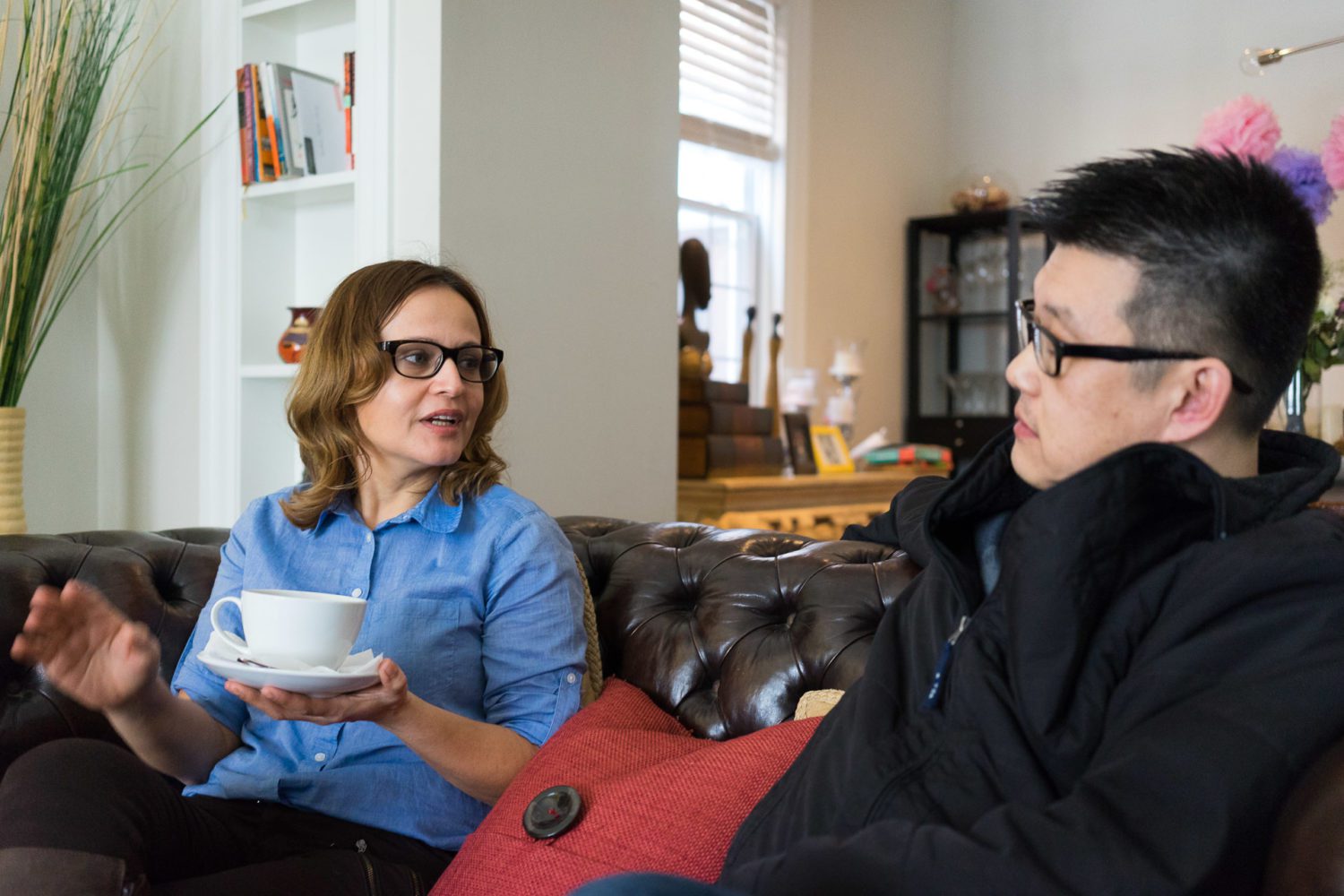Kirby and Indira’s daughter Maya was diagnosed with a rare cancer at the age of four. When Maya was unable to continue her treatment protocol due to a side effect, Kirby and Indira entered the world of experimental trials. Suddenly, they felt as if they were on their own. There was no one to help them find studies or figure out which one was right for their daughter, and the government was unwilling to fund Maya’s involvement in clinical trials outside Canada.
Kirby: “After her diagnosis with neuroblastoma, a rare and aggressive cancer, Maya was treated with chemotherapy as part of a planned series of treatments. Unfortunately, she developed a severe side effect from one of the drugs, and that meant she was no longer able to receive all the planned treatments. That was devastating to us because Maya was still not cancer free. The only option made available to us was palliative care, and we were clear that we weren’t ready to accept that. At that point, we began looking for clinical trials.”
There was no support or guidance to lead us to find clinical trials that might provide new options for Maya.
“Once she was no longer eligible for the treatment they were providing, it felt like the hospital was like, ‘Hey man, you’re on your own!’ We had to roll up our sleeves and look around for clinical trials ourselves.”
Indira: “A lot of our information about what studies were happening and the eligibility requirements came from other parents. There is a significant network of cancer parents.”
“Our hospital is a respected organization, so why is it that we found out about studies through patients as opposed to the organization itself? The only studies that were offered were those available at the hospital itself. However, these studies were often not right for Maya. I mean, surely if your hospital is part of an oncology group, you should know about all clinical trials in your field!”
“Did you ever ask the doctors that question?”
Kirby: “No. Because there is that power line between doctors and patients. Often, we would hold back because we did not want to jeopardize our potential future engagement with our doctors. So not only did we not know where to turn, but we were getting second and third hand information from parents who are not really qualified to give that type of information.”

Kirby: “There got to be a bit of friction between us and the clinical team. We pushed so much. Our question was, ‘There are these studies available and you’re not offering them to us.’ They seemed to discourage us from going elsewhere. We sensed that there was a bit of politics. I don’t know if I am wrong but there seemed to be some type of academic competition between research hospitals, and frankly, I found that distasteful. Because we were desperate to save our daughter’s life, and the last thing on our mind was that there would be this competitiveness.”
“I remember going to meetings with our doctors here in Ontario and we would bring up these clinical trials. ‘What about this? What about that?’ And they didn’t seem supportive, nor did they seem to be offering any other trials or treatments other than the ones at their centre. We started to think we were going to lose our daughter.”
“Then we met a doctor in the US who was running a clinical trial there. She said ‘Don’t worry, you still have lots of options.’ With that single sentence, she revitalized us to keep researching and looking for trials. She gave us so much hope.”
“Thank goodness I have an in-your-face attitude. There are two types of parents. Those like us who want to be engaged and want to know exactly what’s going on. And those who believe in paternalism.”
Does the type of parent you are have an impact on the survival of your child? I think it might.

Indira: “We were considering having Maya treated in Grand Rapids, Michigan. Part of the problem with going to Grand Rapids was that now we were talking money – upwards of $70,000 for the treatment alone. There was an application to the Ministry of Health, but they generally reject anybody who is asking for money to enroll in a clinical trial outside of Canada. Not only do you have a life and death situation with your child, but now you have to worry about where the money is going to come from! We went through the Ministry process and got declined.”
Kirby: “When Maya developed secondary cancer due to the treatment she received for neuroblastoma, we were accepted into a study at St. Jude Hospital in the US. The trial was for a special type of bone marrow transplant called a haploidentical transplant. It doesn’t require an exact match, which, given that Maya is half Korean and half Ecuadorian, would be next to impossible to find. In this case, I could be the donor. St. Jude paid for the therapy, as well as our travel, our accommodation and they gave us a certain amount for food.”
Kirby: “These treatment ultimately saved Maya’s life. For two and a half years, she has been out of therapy and cancer-free. St. Jude is still paying for our costs to fly there for Maya’s six-month check ups. She is also being followed closely here at our home hospital by the bone marrow transplant team.”
It’s hard not to be cynical when the United States government pays for your child’s therapy, and your Canadian government will not.

Kirby: “We wanted to find therapies in Canada, but there aren’t enough clinical trials in Canada! People who are looking to go into these clinical trials in the United States really need them. Why would you go to the United States if you could get the best of care in Canada? I am not suggesting we should support access to snake oils, right? But if there are therapies outside Canada that are not available here, and a person is gravely ill, then we must support Canadians to access them.”
I have a message for the Ministry of Health. Please don’t make us hire lawyers to fight you! Because we don’t have the wherewithal.
“If we as a nation have social medicine, then please make it social, rather than making us go and fight when it’s absolutely the most desperate situation in our lives. Everything is blowing up in our world and this is not the time to have to go through legal proceedings.”

Kirby: “At the end of the day, there are two very strong emotions that run through us. The predominant one is gratitude. We love our daughter like any parent, and we couldn’t be more thrilled than to see her walk and run and belly laugh and do all the things that a child should do.”
“So, we have a tremendous amount of gratitude knowing that there are people out there – oncologists, nurses, nurse practitioners, the cleaning staff who supported us through our journey.”
Many of the clinicians are there for you, cry with you, and they suffer along with you.
“Oh my goodness, what would we do without those people? Our transplant doctor at our hospital – she did everything in her power to get us to St. Judes. The amount of gratitude I have for her…. she’s been extraordinary. We will for the rest of our lives be grateful, and in our own way we will repay that.”
“But then there is anger. We need you to do better! You’re using the same old tools that are damaging people: chemotherapy, radiation, resection and now a little bit of immunotherapy. The God particle. Do you think it’s easy to discover that? It took a global effort and I don’t see that in cancer. I want to see the Steve Jobs of medicine. Where is that vision? I feel that oncology has failed miserably because you have these specialized groups that are touting whatever it is they do without truly working together. And that makes me angry. Because with a sick child, there is an absolute hopelessness that exists and there’s nobody to help you. Unless you have an attitude, you cannot survive. And if I speak out like this, some say, ‘Oh, he is just an angry man.’ I’m simply trying to say, please, please help people like us. Our child is alive. But we know many people, our friends, who had to watch children die.”
Indira: “There are just so many mixed feelings. Our daughter is alive and it feels like we went through hell and back, and right now we’re just trying to mend the pieces from the horrific experience in every level. There are people that we will forever be grateful to. But the fear of cancer, to have gone through cancer, it’s just a paralyzing fear. Because it’s not only the battle of getting the chemotherapy, it’s everything else around it – navigating the system and everything.”
This is our second interview with Kirby and Indira. To read the first interview, which focuses on the care Maya received, click here.


The comments section is closed.